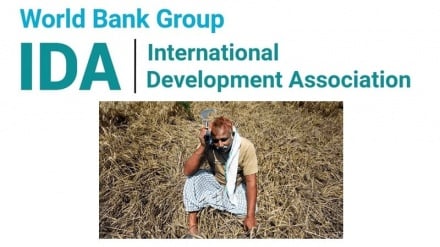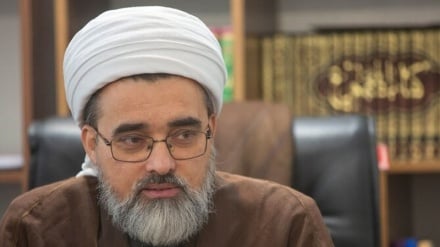Indian government pushes religion-based citizenship law
A bill that the Indian government recently pushed through the lower house of Parliament would grant citizenship to refugees from Pakistan, Bangladesh and Afghanistan who are Hindus, Sikhs, Buddhists, Jains, and Christians.
The government argues that those are minorities in Muslim-majority countries and therefore particularly prone to persecution.
The following is an article titled, “Indian government pushes religion-based citizenship law”. This interesting article has been written by New Delhi based journalist, Saikat Datta.
The bill has come in for criticism for discriminating against Muslim would-be immigrants. It will now go to the upper house, which would need to pass the amendments to make them law. At that point, legal experts say, the new law likely would be challenged in the Supreme Court for violating Article 14 of the Indian Constitution.
This is the second time this year that the Hindu nationalist Narendra Modi government has proposed the amendments. Its first attempt came a few months ago, before the general elections in April-May this year.
At that time, furious opposition to the bill from the upper house of Parliament as well as citizens in India’s northeastern states led to its lapse eventually.
Even as the bill was being prepared for tabling in Parliament furious protests erupted across India’s northeastern states, which fear that indigenous communities will be reduced to minorities if the bill becomes law.
Separately, more than 1,000 academics and scientists from India’s top institutions issued a joint statement protesting the Bill’s introduction and calling it “unconstitutional.”
Their statement said: “We are issuing this statement in our personal capacity as concerned citizens to express our dismay at the reported plans to table the Citizenship Amendment Bill 2019 in the parliament. The use of religion as a criterion for citizenship in the proposed bill would mark a radical break with … history and would be inconsistent with the basic structure of the constitution.”
The academics cited a major constitutional judgment of the Supreme Court in 1973, known as the Kesavananda Bharti case, which was heard by a 13-judge bench. A bare majority, seven judges, ruled that there is a “basic structure” to India’s constitution that cannot be altered by any amendment.
This precedent has kept governments from passing laws that could alter the “basic structure” of India’s constitution.
The statement said: “We note that article 14 of the Indian constitution prohibits the state from denying ‘to any person equality before the law or the equal protection of the laws within the territory of India’. While it is the job of legal experts to determine whether this draft bill violates the letter of the constitution, it seems certain to us that it violates its spirit.”
India’s Union home minister Amit Shah, who introduced the amendments, disagreed.
Rather, he blamed the principal opposition, the Congress party, for “allowing the partition” of India in 1947 “on the basis of religion” and said this Bill would redress the wrongs of the past.
A key trigger for the Bill is the National Register for Citizens (NRC), which was introduced in the northeastern state of Assam on the directions of the Supreme Court.
The highly contentious NRC was an attempt to trace “illegal aliens” who had migrated to the state since 1951. However, at the end of the exercise only 1.9 million were found to be “illegal” – a majority of whom are Hindus.
For the ruling Bharatiya Janata Party, which champions Hindutva (Hindu-ness) as its core philosophy, this was a serious setback. Since then, it has been seeking a way to legitimize Hindu refugees as citizens, while ensuring their Muslim counterparts have no such provision for Indian citizenship.
India does not allow dual citizenship and does not recognize citizens of Bangladesh and Pakistan as people of Indian origin by law.
Ironically, many Assamese-speakers who supported the NRC are now against the citizenship amendments. They believe that the majority of the Hindu migrants who stand to gain are Bengali-speaking.
If they are recognized as Indian citizens, then they will eventually make the Assamese-speakers in Assam a minority. India’s states, which were created on a linguistic basis, are extremely sensitive to any erosion of their regional characters.
The bill comes at a time when India is in the midst of one of its worst economic downturns. Economists worry that bringing in the contentious bill at this time will distract the government from taking on the economic downturn.
According to official figures, unemployment is at a 45-year high, while private consumption and the GDP have collapsed in the last two quarters. Manufacturing is also down, and as India’s former central bank governor Raghuram Rajan warned, India is facing a “growth recession.”
Bringing in the bill at this juncture, observers warned, could lead to a deeper recession while social strife is bound to go up. The view of the economist is widely shared among other economists who have been warning of a slowdown for months.
However, political observers feel that the Modi government is using the bill to polarize voters following the Supreme Court’s settlement a few weeks ago of the issue over the construction of a temple to Ram at a disputed site.
The Ram temple became a linchpin issue for the BJP’s politics after party cadres demolished the Babri Mosque in December 1992. Since then it has whipped up the issue to grow its political base, eventually leading to a majority in Parliament in the general elections this year.
Keen to push through the citizenship amendments, the BJP issued instructions to its members that led the lower house to clear the bill by a majority of 311, while 82 opposed it.
SS/ME


